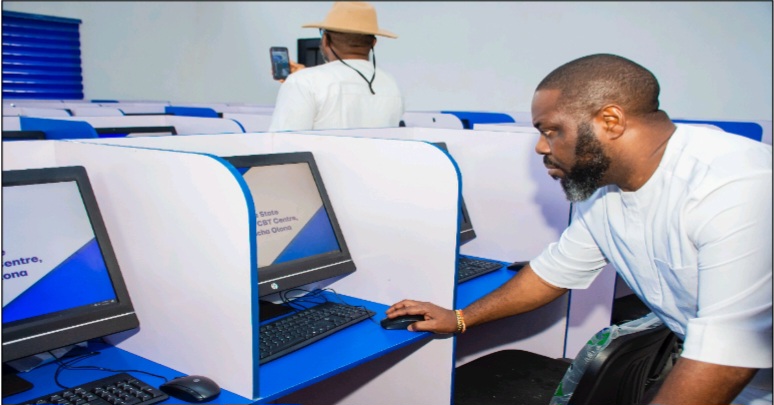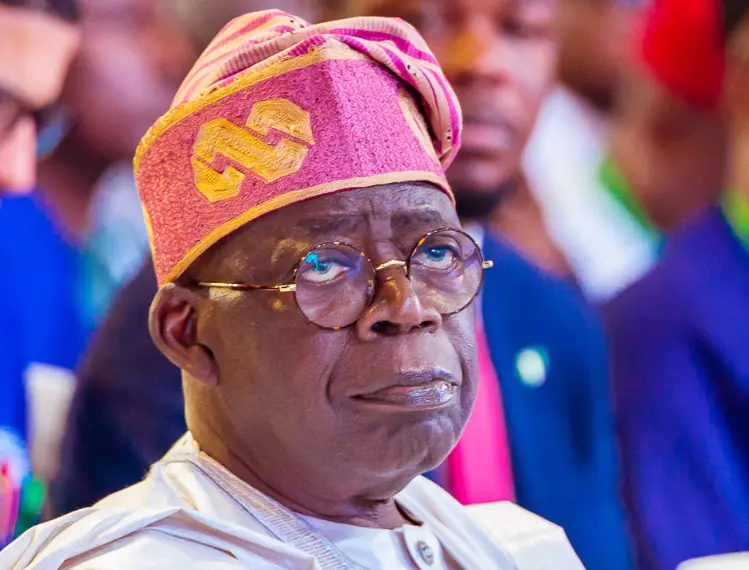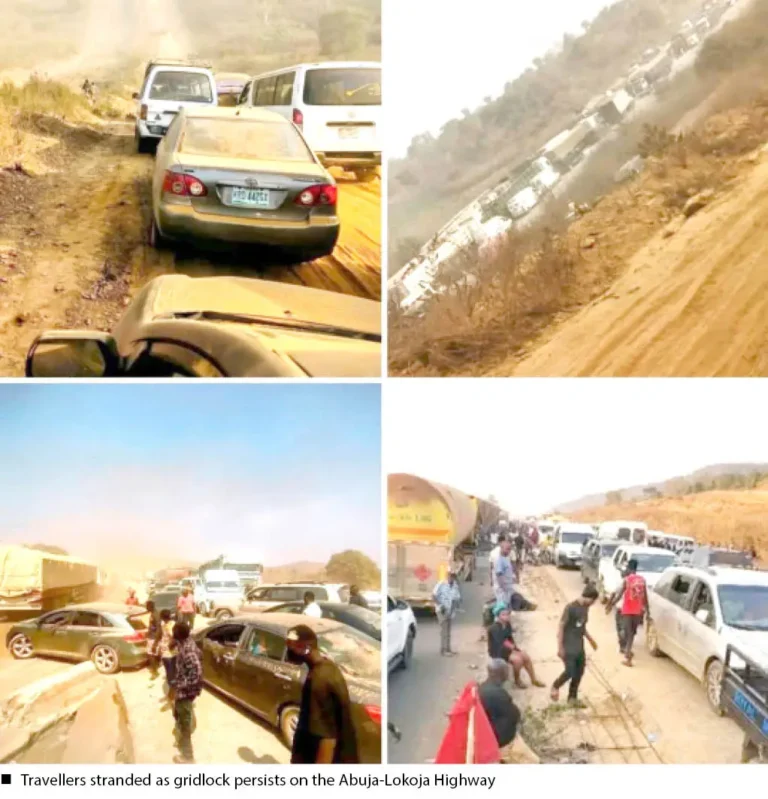
As the world moves at break-neck speed towards a technology-driven existence, it is becoming increasingly clear that the human race, as we currently know it, has stepped into a technological revolution mode so profound that every aspect of life, from political governance, health, education, transportation, Agriculture, communication and the way we relate with our environment, would be driven by one form of technology or the other.
The evolution of Science and Technology, especially in the past few centuries, have hugely transformed societies, economies and the way the world operates. Scientific revolutions in the 19th and 20th centuries have seen monumental progress in the rate of industrialization, development of electronics and computing abilities which have ushered in the Information Age. The launch of the internet and mobile devices, including technologies associated with Artificial Intelligence has further shown the immense new opportunities for innovation and economic boom in countries that embrace technology.
The need for Delta State to invest in building a modern economy outside Oil cannot be overstressed. To drive productivity in all sectors of human activity such as agriculture, transportation, improvement in healthcare, advancement of Education, and encourage sustainable development, there is a critical need to invest in building the required technological infrastructure, as it has become obvious that countries and jurisdictions investing in these sectors tend to experience a faster industrial growth as well as increased ability to compete on the global stage.
In Nigeria, and particularly Delta State, the application of science and technology can significantly boost the digital economy. Through initiatives in ICT infrastructure, digital skills development, and innovative startups, Nigeria can leverage technology for economic diversification. For Delta State, embracing digital solutions in agriculture, healthcare, education as well as in other sectors, can improve efficiency, empower local communities, and attract investments, ultimately fostering sustainable development and a stronger economy with new jobs that would engage the youths.
To paint the current tech realities and opportunities in bold relief, the Director-General of the Securities and Exchange Commission, SEC, in a report by The Nation newspaper of Monday, August 18, 2025, was quoted as forecasting that “digital assets could present a S10 Trillion opportunity by 2030,” stressing that “With our young, tech-savvy populations, Africa and the Middle East must lead – not follow.”
Under the Oborevwori administration in Delta State, there is a deliberate strategy by the government to build a sustainable legacy of economic resilience outside the traditional oil economy by diversifying to the Digital Economy through the application of technological solutions in different aspects of the state’s socio-economic life.
The Governor’s MORE agenda, which is an acronym for Meaningful development, Opportunities for all, Realistic reforms, and Enhanced peace and security, is the bedrock of all developmental initiatives of the administration.
Thus, in the Science and Technology sub-sector, supervised by Dr. Daniel Odigie as commissioner, a number of innovative tech policies and initiatives are being incubated to foster innovation, empower youths, bridge the digital divide among citizens as well as position Delta State as a regional technology hub.
In the past two years of the Oborevwori administration, visible and practical steps have been taken to showcase the state’s commitment to science, technology and innovation as deliberate strategies for sustainable development. These include:
1. Empowering Youth Through Technology
The Ministry’s ICT-Youth Empowerment Programme (ICT-YEP) has trained over 300 young Deltans in advanced ICT skills, including digital design, content creation, and tech-driven arts. On May 28, 2025, during Governor Oborevwori’s second anniversary celebration, beneficiaries received laptops as Starter Packs, equipping them for entrepreneurship and employment.
2. Technology Skill Acquisition Programme (TSAP). This was revamped to provide training and start-up grants, with six outstanding participants receiving ₦250,000 each to launch tech-based ventures. These initiatives are creating a generation of digitally skilled entrepreneurs, reducing unemployment, and driving economic growth.
3. State-of-the-Art CBT Centre in Onicha-Olona
To address the rural-urban digital divide, the Ministry established a world-class Computer-Based Test (CBT) Centre in Onicha-Olona, Aniocha North, equipped with 300 modern computers. This facility enhances access to digital education, online assessments, and career opportunities for rural communities. Plans are underway, with approvals supported by the 2025 state budget, to replicate similar centres in Delta South, Delta North, and Central Senatorial Districts, ensuring statewide digital inclusion.
4. Driving Technological Advancement and Education
The Ministry launched Delta State’s first Senior Secondary Schools Science and Technology Expo, inspiring students to showcase innovative projects. Finalists received Android 13 tablets, and top performers are being mentored to compete globally. The 774-Young Nigerian Scientists Governorship Award (YONSGA) promotes academic excellence across Delta’s three senatorial districts, integrating STI into education. Delta’s innovation ecosystem shone at the 2024 National Science and Technology Expo, securing 3rd place among 36 states including the FCT, while achieving 6th place in the 774-Young Nigerian Scientists Presidential Award (YONSPA), with one of the participants excelling at the university after scoring 341 in JAMB.
5. STEM Education and Digital Literacy for 21st Century Development
The Ministry prioritizes STEM (Science, Technology, Engineering, and Mathematics) education and digital literacy to prepare students for global challenges. Collaborating with stakeholders, it equips teachers and students with practical STEM skills and digital fluency.
6. Monitoring and inspection of public secondary school laboratories across the state
Recognizing the importance of functional science laboratories for effective STEM education, the Ministry undertook extensive monitoring and inspection of public secondary school laboratories across the state. The objectives of the exercise include:
Verifying the presence and qualifications of Science Teachers and Laboratory Technologists.
Schools inspected include: West End Mixed Secondary School, Asaba.; Owa-Alero Secondary Commercial School Unity Secondary School, Okpanam and Ogume Grammar School, all in Delta North Senatorial District. Osubi Secondary School, Osubi; Orerokpe Secondary School, Orerokpe; Government College, Ughelli; Okotie Eboh Grammar School, Sapele in Delta Central Senatorial District, while in Delta South, Yonwuren College, Ugbuwangue, Warri; Olomoro Grammar School. Essi College, Warri.
Findings from these inspections point to the urgent need for enhanced laboratory funding. In partnership with NASENI, the Ministry is introducing indigenous science kits to rural schools, fostering hands-on STEM learning.
7. Global Partnerships for Local Impact
The Ministry’s innovation efforts attracted international attention, culminating in a Letter of Intent with the Swedish government following a visit to the Delta State ICT Hub in Asaba. This partnership will launch a remote work empowerment program in Q3 2025, training Delta youths for local and international ICT jobs, enabling them to earn in foreign currencies. This initiative promises to reduce youth restiveness and boost economic productivity. ICT Centre & Foreign Partnerships
“We also plan to establish a call centre in the ICT Centre for multinational clients, offering services such as virtual assistance, surveys, and secretarial work. The call centre will operate in six-hour shifts, creating 300 jobs daily
in a 24-hour cycle,” Dr. Odigie said.
Management & Monitoring of Centres
“These centres will most likely be run by consultants, though the government will remain involved. We have a monitoring and evaluation framework to track beneficiaries of empowerment programmes. Many trainees have gone on to create blogs, podcasts, and even media companies. From the most recent programme, completed on May 28 this year, at least 25 participants are already gainfully engaged.”
8. Digital Service Delivery & Broadband Expansion
“Regarding digital service delivery, we have approval to migrate our Escrow platform to a fully digital system, enabling remote access. This project will serve as a test case and should be operational by September.
“We are working with broadband providers to lay fibre-optic cables across the state, both underground and via electric poles. Once connected, this infrastructure will power smart city initiatives such as automated traffic enforcement and real-time CCTV monitoring.”
Infrastructure and Digital Inclusion
To enhance internet connectivity within the massive state worker’s secretariat, the Ministry, in collaboration with relevant MDAs through special duty projects, secured approval for telecom providers (MTN, Airtel, GLO) to install masts at the Delta State Secretariat, with GLO having completed installation and operational with improved services since July 2025, while MTN and Airtel installations are completed but currently awaiting power supply to become fully functional. This development has brought smiles to the faces of state government employees.
9. The Delta State Residency Card
The Ministry of Science and Technology, in conjunction with THE OFFICE OF THE SSG, DG SECURITY MATTERS, MINISTRY OF TRANSPORT, MINISTRY OF FINANCE, and MINISTRY OF PHYSICAL PLANNING AND URBAN RENEWAL, powered by sterling bank, is in the process of supporting e-governance by streamlining access to services like transportation and healthcare, while creating ICT jobs through this biometric digital ID system.
“On the residency card, we are engaging artisan unions directly. We have met with their leadership and agreed on a collaborative approach. Registration will benefit both the government and artisans, improving access to grants and loans. We plan a modest registration fee, possibly ₦5,000 annually, which will feed back into the unions and their activities.”
10. The Ministry is also finalizing the Delta State Digital ICT Policy, a framework for digital transformation, smart city development, and e-governance. Plans for fibre optic infrastructure across major cities aim to ensure seamless digital communication.
“When we assumed office, Delta State had no Digital ICT Policy. We initiated its development, formed a committee comprising stakeholders from the private sector, academia, and the ICT ecosystem, and produced a draft policy. This draft is currently being reviewed across relevant MDAs for contributions and suggestions. The policy will apply across the state, not just within our ministry.
“We have also implemented the ICT Youth Empowerment Programme, training 300 participants from 25 local government areas in various courses. This has enabled them to develop themselves and become entrepreneurs.
11. Promoting Technology Incubation and Local Manufacturing
The Ministry is revitalizing the Technology Incubation Centre (TIC) in collaboration with federal authorities, providing start-ups with modern tools and infrastructure. Land has been acquired in Orerokpe, Bomadi, and Effurun for new centres, while Dennis Osadebe University has allocated land for an integrated Science Laboratory—a first-of-its-kind facility for research, ICT development, and environmental monitoring. These efforts promote local manufacturing and value-added production, stimulating the economy.
12. Building a Digital Future
Through initiatives like The DELTECH Experience, the Ministry showcases local innovations and fosters collaboration among entrepreneurs, technologists, and investors. Partnerships with Chevron trained 250 students in AI and robotics, while collaboration with the Ministry of Transport supported the Compressed Natural Gas (CNG) transition. The vision includes free Wi-Fi in school libraries and airports, positioning Delta as a digital innovation hub.
13. A Connected Future for All
The Ministry’s multifaceted approach; spanning youth empowerment, digital infrastructure, STEM education, and global partnerships, reflects its commitment to a digitally inclusive Delta State. By compiling R&D results, establishing networks with universities and research institutions, and organizing STI fairs, seminars, and exhibitions, the Ministry ensures Delta remains at the forefront of innovation. Dr. Odigie’s leadership has laid a foundation for sustainable development, with plans for smart cities, enhanced connectivity, and increased economic opportunities.
In conclusion, it is gratifying to note that in just two years, the Delta State Ministry of Science and Technology, under Dr. Daniel Odigie, has transformed Delta’s technological landscape. By empowering youth, upgrading infrastructure, fostering global partnerships, and promoting STEM education, the Ministry is building a smarter, stronger, and more digital Delta. As it continues to think outside the box, leveraging initiatives such as the Delta State Residency Identity Card scheme and Deltech Experience, Delta State is poised to become a model for innovation-driven growth, delivering on the promise of a prosperous, technology-led future for all Deltans.
It is the hope of citizens of the state that the digital renaissance of the current administration would be felt across all sectors, especially in education, agricultural development, transportation, and other areas of economic activities that would ensure a sustainable economic base for Delta.




